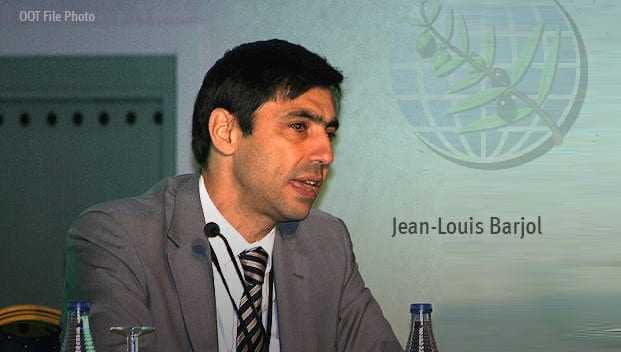
A financial clamp on the activities of olive oil’s peak body — the International Olive Council — could end at the end of May when a new attempt is made to pass its budget for 2013.
All other matters that were on the agenda when its Council of Members lost quorum at what was meant to be the closing sitting of its 100th session last November will also be back on the table for a new meeting late next month, IOC executive director Jean-Louis Barjol has told Olive Oil Times.
Promotion in key markets on hold
These include budgets to promote olive oil in critical growth markets such as China, North America, Japan and Brazil — where the IOC’s promotion work has practically frozen — and reports prepared by IOC committees on issues such as possible changes to the chemical parameters for olive oil tests.
“I am very happy that the IOC will be resuming activity and that we’ll have the opportunity not only to debate the 2013 budget and the activities for 2013 which require expenditure, but also that members will start their reflection on the next governing agreement for the IOC, which is due to enter into force on January 1, 2015,” Barjol said.
Last Council ended abruptly, leaving IOC in limbo
The 100th session of the Council was due to vote on many recommendations, including the IOC budget for 2013, at what should have been its closing sitting last November 19 – 23 in Madrid. However, on the day voting was due to occur, quorum was lost.
According to Olimerca magazine, members from Turkey and Israel walked out in dispute over a proposed new IOC staffing agreement.
The power to convene a Council meeting is held by the IOC president, a position currently filled by former IOC executive director Habib Essid, Minister of the Interior in the interim government of Tunisia.
Barjol expects next meeting will be efficient, and maintain quorum
Barjol said that after a series of informal contacts with some key IOC members, Essid had taken the decision to call the meeting for the last week of May. He said he felt confident the meeting would be an efficient one and would maintain a quorum.
Barjol also stressed that the IOC had not come to a complete standstill in the last five months. “It is true that it has not been possible to carry out activities due to the lack of funds, but the Executive Secretariat has not been standing by with its arms crossed.”
“Work has continued in many areas that do not require funding, for example in the collection and dissemination of statistics, the publication of the market newsletter, the gathering of information on production costs, the Mario Solinas Award, the preliminary steps for the IOC’s participation as the project supervisor of a pilot nursery, and the development and approval of a collaboration agreement with the United Nations Food and Agriculture Organization (FAO),” he said.







